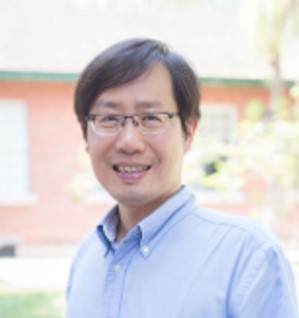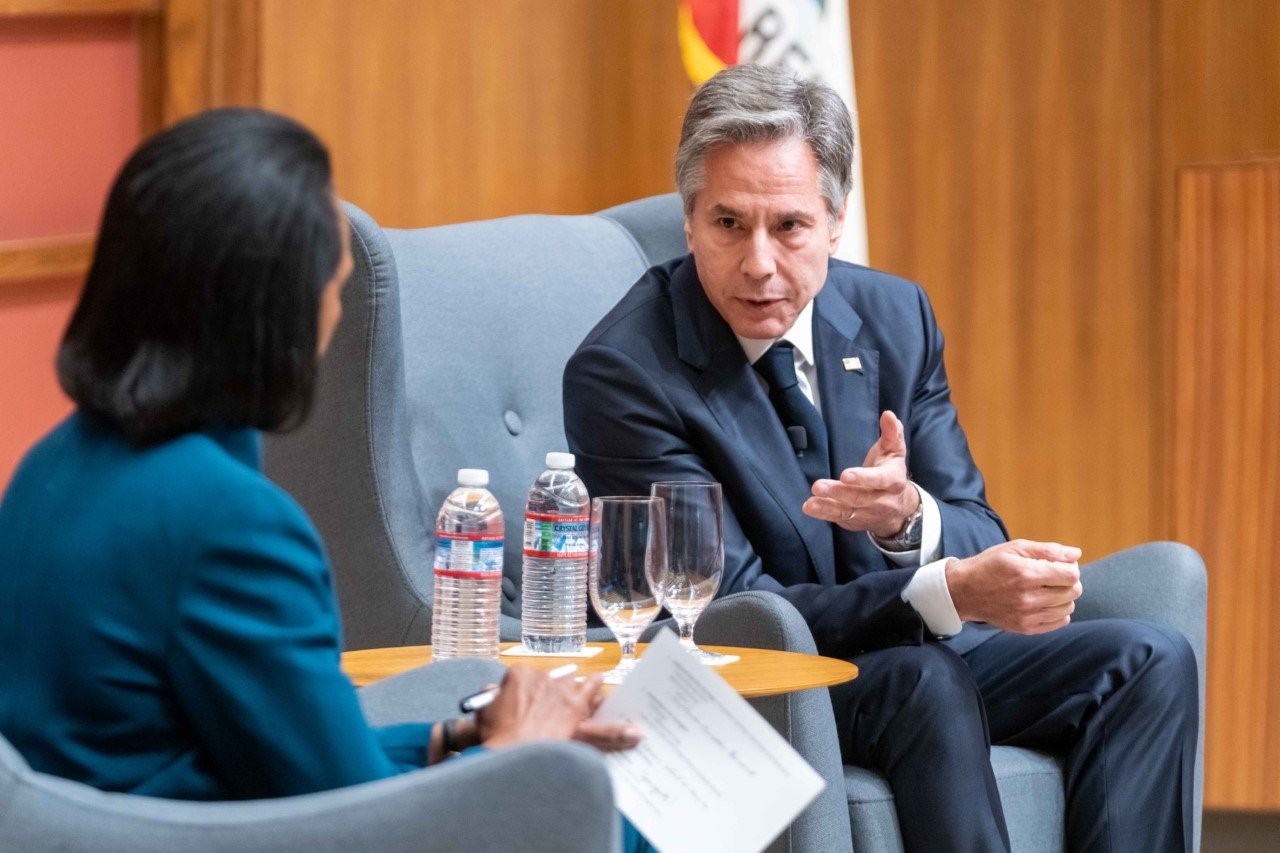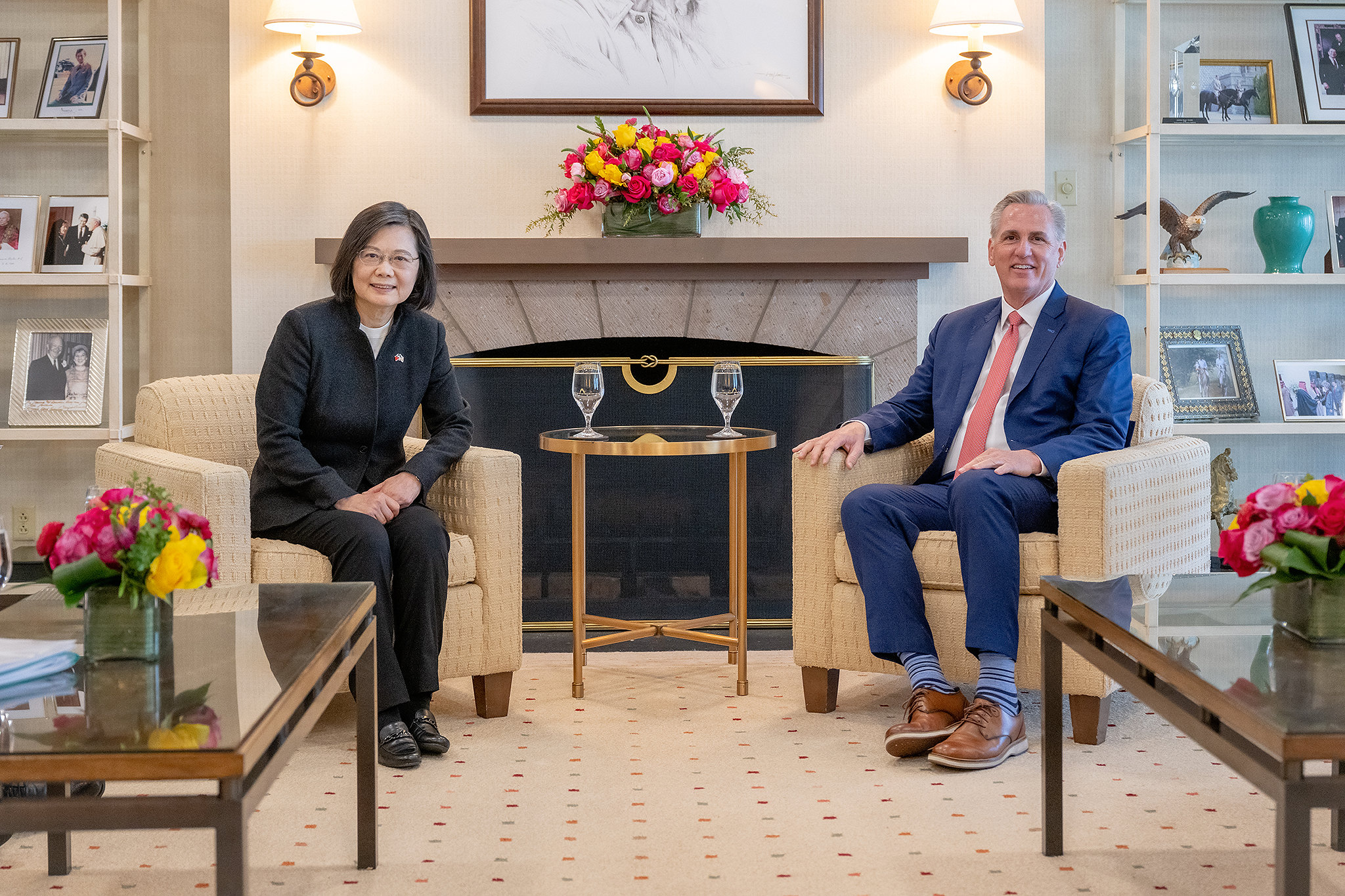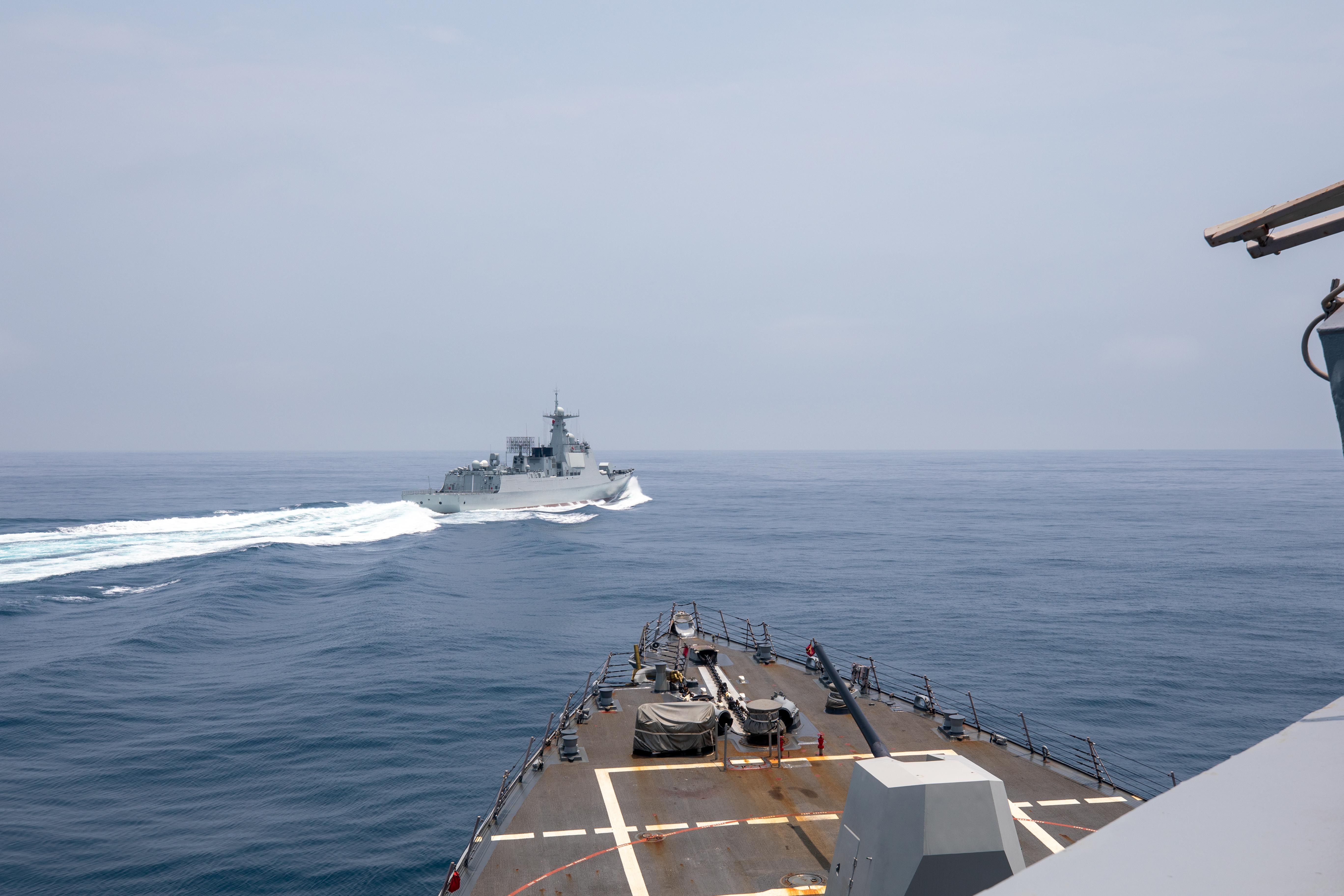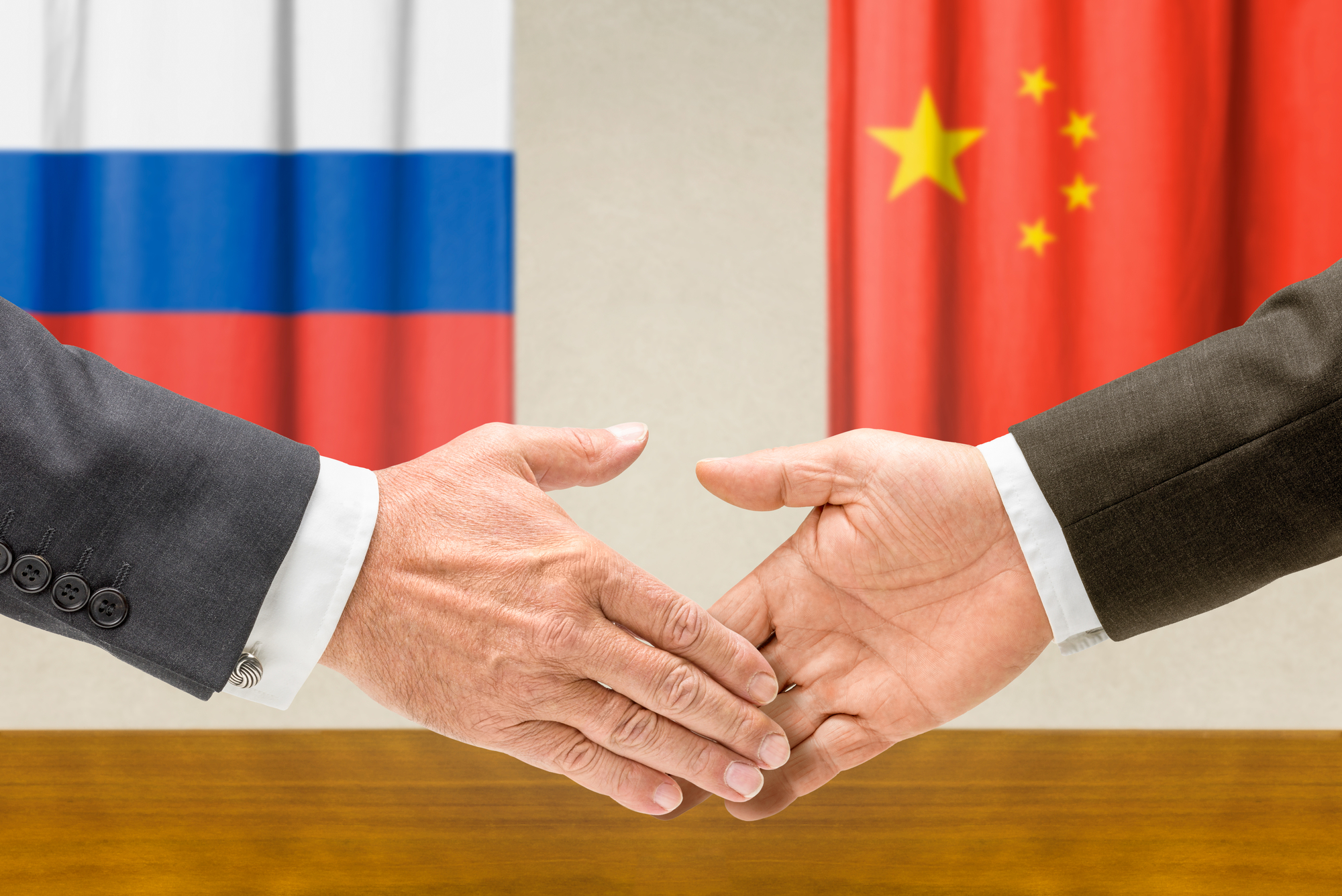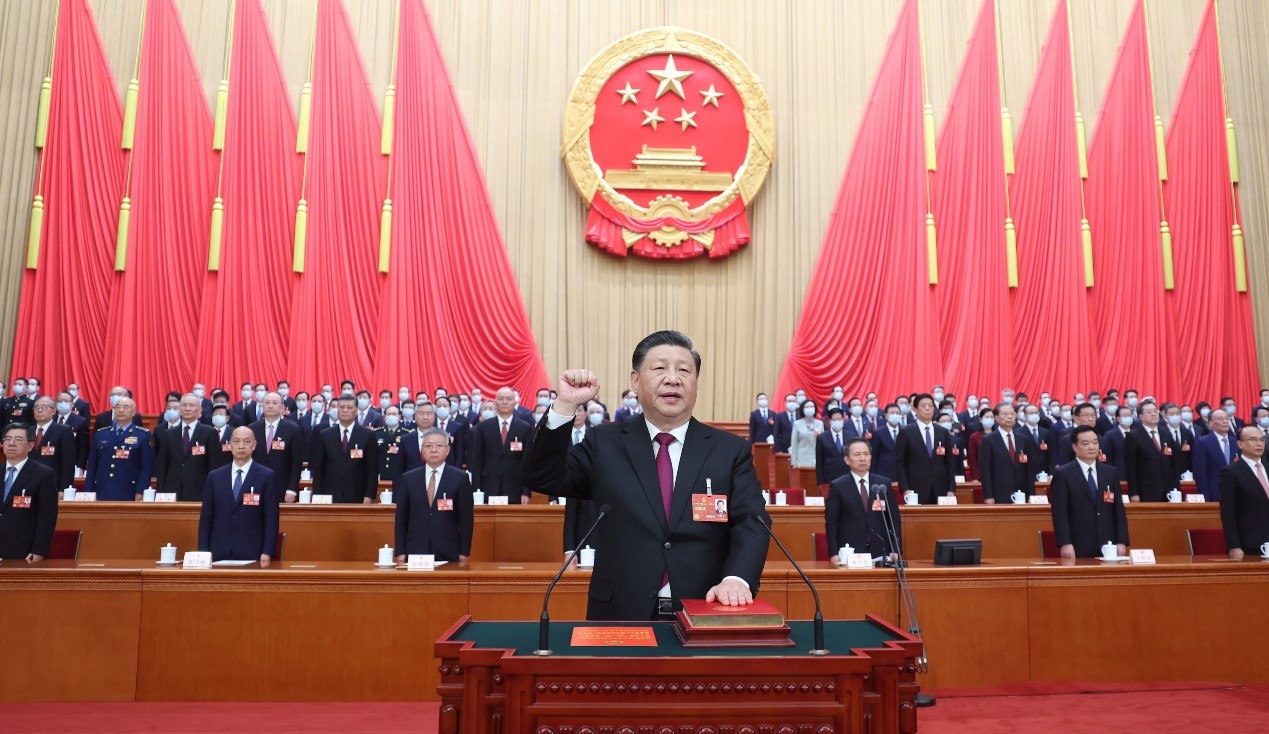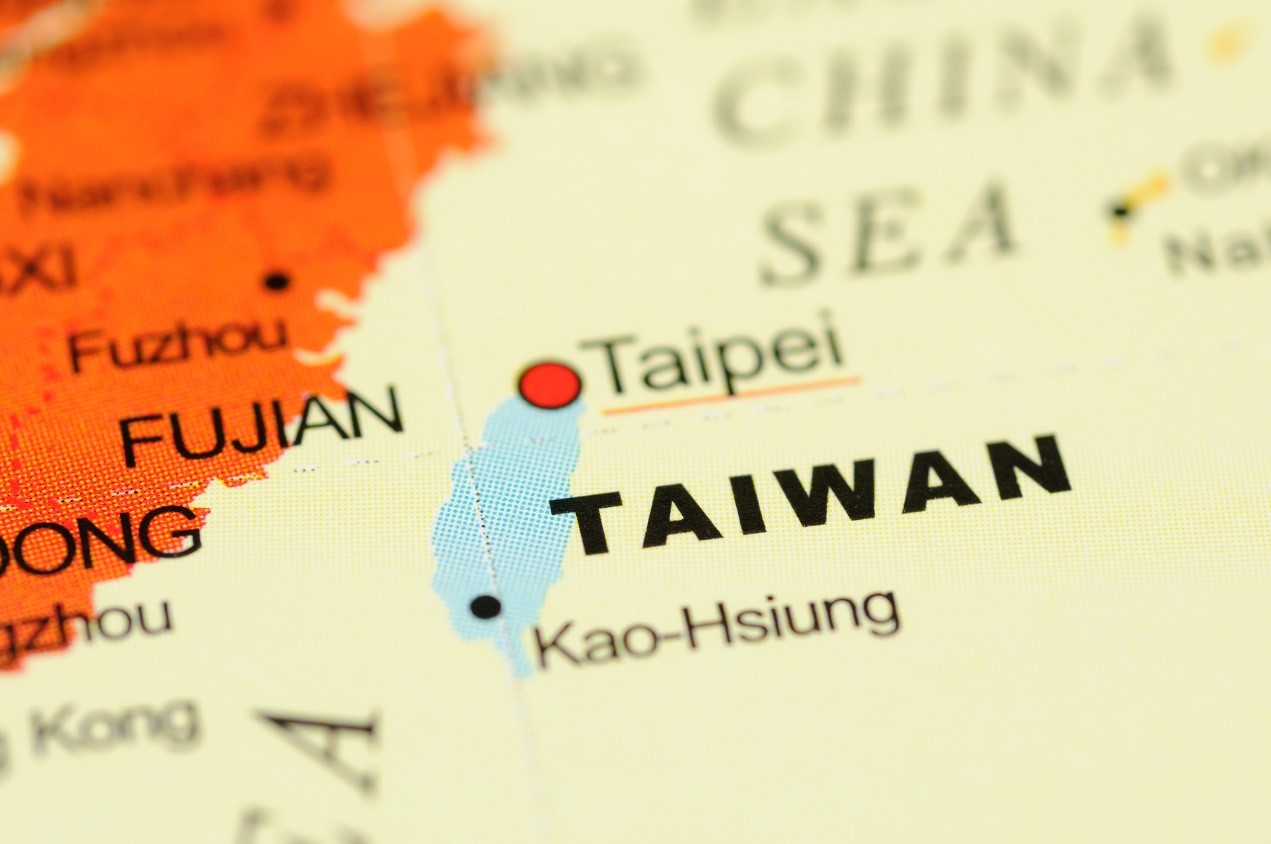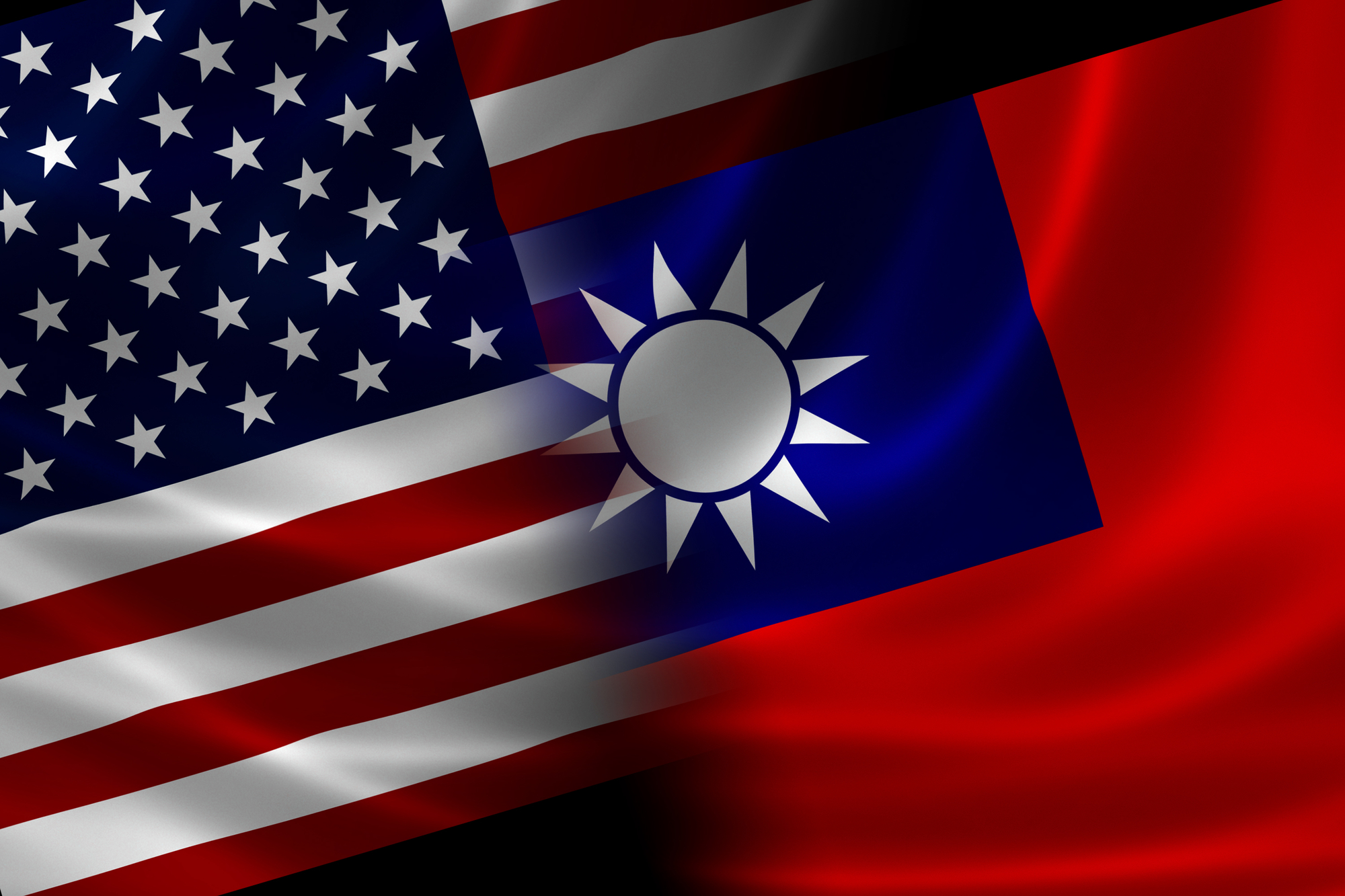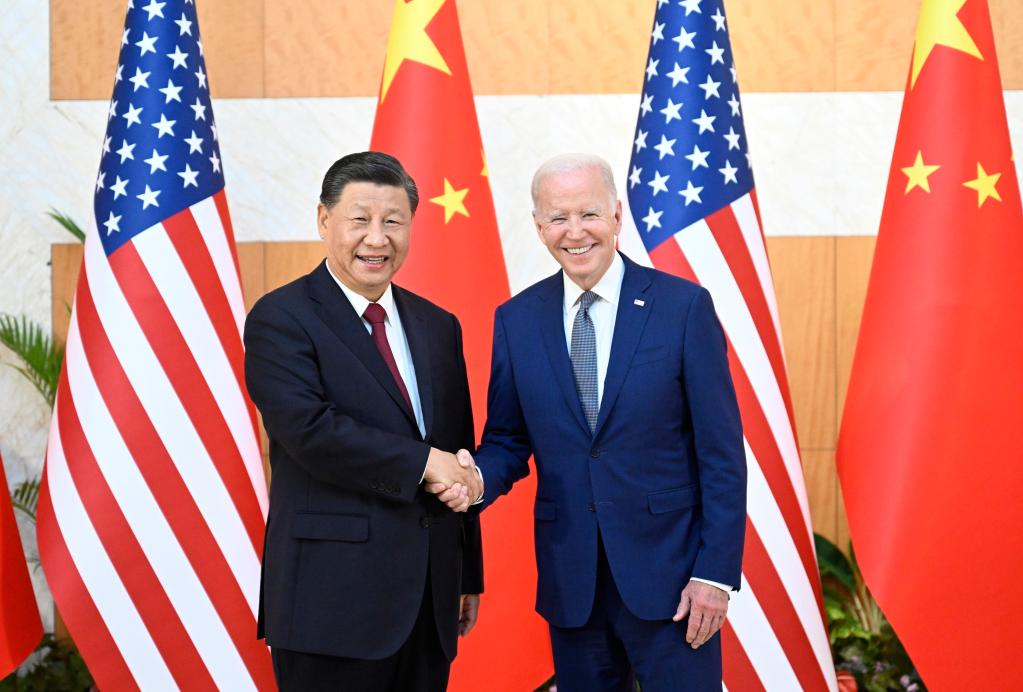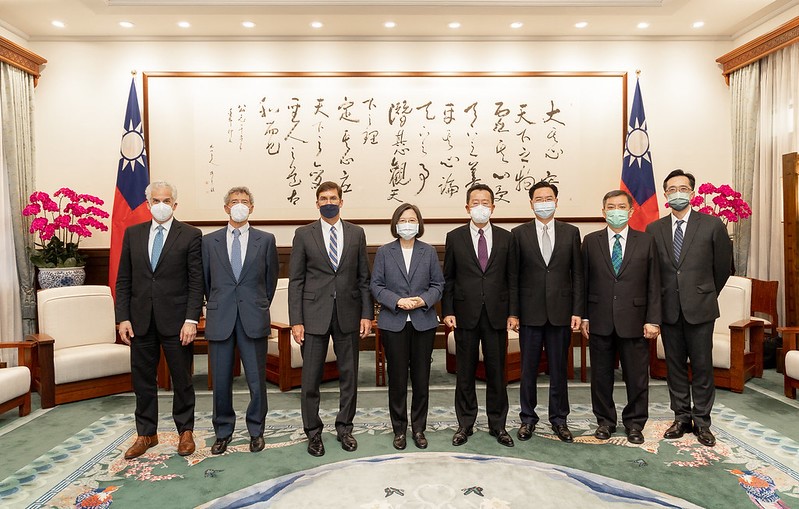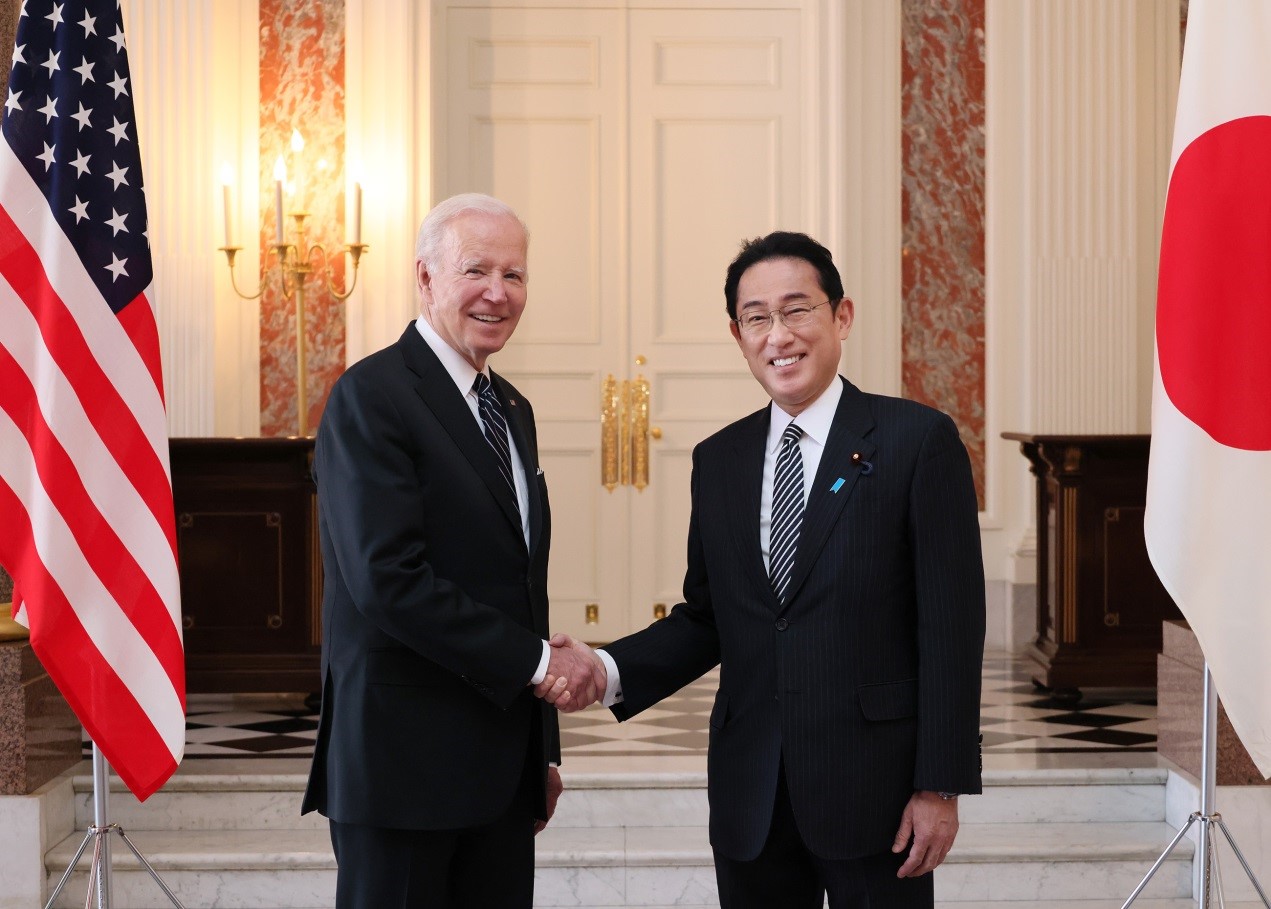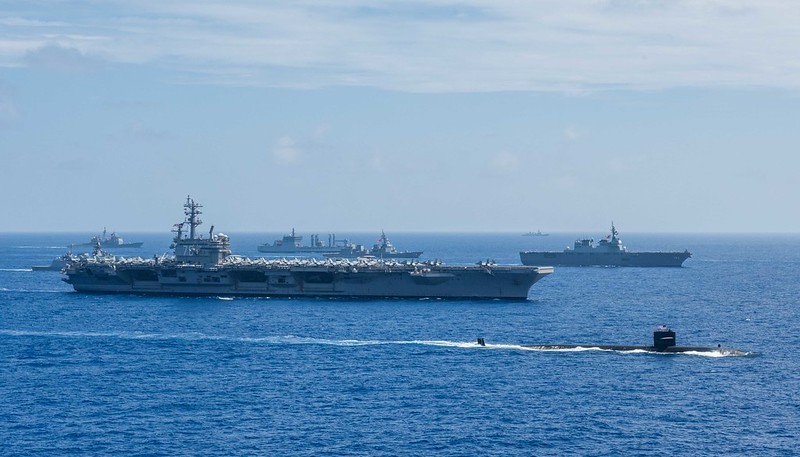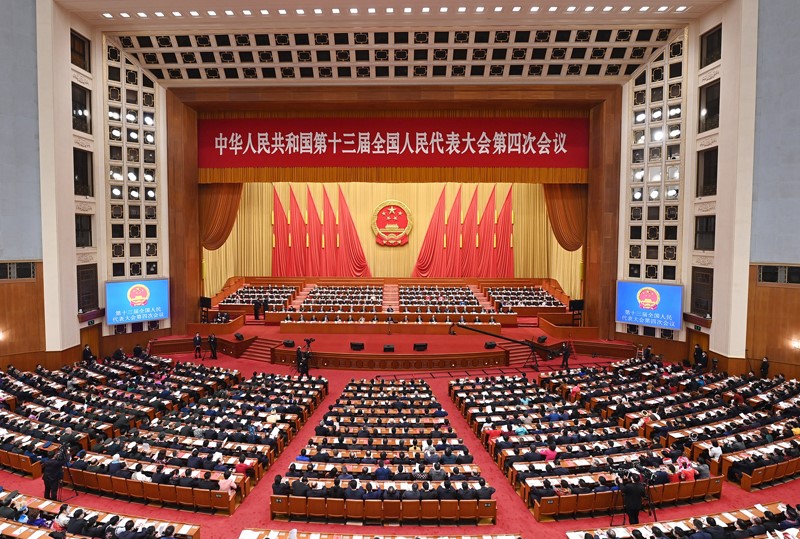China’s Policy towards Taiwan after the 20th Party Congress: US Warnings about the Situation in the Taiwan Strait
Chinese authorities under Xi are actively biding their time to invade Taiwan after completing all necessary preparations for forceful unification. Secretary Blinken’s warnings are not groundless but a serious wake-up call for all Taiwanese: hope for the best, and prepare for the worst.
Picture source: Secretary Antony Blinken, October 18, 2022, Twitter, https://twitter.com/SecBlinken/status/1582111544871071745/photo/4.
China’s Policy towards Taiwan after the 20th Party Congress:
US Warnings about the Situation in the Taiwan Strait
Prospects & Perspectives No. 66 November 16, 2022
By Chin-fu Hung
A new power structure, which will have a long-lasting impact on the future of China, the world, and Taiwan, was at the heart of the 20th Congress of the Chinese Communist Party (CCP). Xi Jinping opened his third term, unprecedented since the beginning of reform and opening up in the late 1970s, with a break in the fundamental rule set by Deng Xiaoping abolishing the lifelong system of leading cadres and limiting them to no more than two consecutive terms. Power is now highly concentrated in Xi’s hands, with the other new members of both the Politburo and its Standing Committee made up of his close allies. Xi, therefore, is effectively surrounded with loyalists.
As soon as Xi embarks on his third, five-year term as secretary general of the CCP, a few notable developments will follow. As soon as the 20th Party Congress ended, Xi’s first public visit was to go to the site of the Seventh Congress of the Communist Party of China in Yan’an, which was where the Party ideologically established the guiding role of Mao Zedong Thought in the whole Party. Xi set a similar tone, indicating that he, too, would seek to unite the Party and lay Xi Jinping Thought in the new era in the years ahead. He then went to Hongqiqu, Henan Province, intending to call on the people of the whole country to learn from the spirit of sacrifice and dedication at that time, and to ask the people to unite around the Party Central Committee.
Xi’s third trip was to the Central Military Commission’s Joint Operations Command Center in Xishan, Beijing. This particular center, which is subordinate to the Central Military Commission (CMC), was re-created and reformed by Xi after he came to power. Arguably, it is the most important entity in China’s military commission, and is solely responsible for combat. Xi, the commander-in-chief of joint operations of the CMC, stressed during his visit that it is necessary to implement the spirit of the 20th National Party Congress, comprehensively strengthen military training and preparation, accelerate the improvement of the ability to win wars, and effectively fulfill the missions and tasks of the military in the new era. This is probably not a mere slogan, but rather something that is being done. The CCP’s core task in the new era is to “retake” Taiwan and realize the complete reunification of the “Chinese motherland,” as the fundamental foundation for promoting the “Chinese Dream” of the great rejuvenation of the nation.
In order to “recover” Taiwan, China has already begun preparations for war. This can be vividly observed from recent developments in three areas. First, China has slowly shifted its national economy to a planned and/or command economy, and to the direction of state monopoly for purchase and marketing, re-establishing supply and marketing cooperatives and state-run canteens. It has done so to prepare for a wartime economy. If China is determined to launch a war against Taiwan, it will confront a swiftly deteriorating relationship with the West, especially the United States, and other neighboring countries, together with possible containment and sanctions. Shifts in its economic posture would conceivably help it mitigate the effects of such economic sanctions.
Second, through tightened grid management — from the city to the community, and then to every household, especially under the current zero-Covid policy, the implementation of health codes, with the epidemic “Health Kit” (健康寶) “pop-up” (彈窗) APP system — the CCP can better control the entry and exit of personnel, and firmly monitor the flow of people in an effective and efficient way.
Third, following the first revision to the Law on Legislation (立法法) of the PRC in March 2015, new revisions have again been made, seven years later. The revised draft does not adjust only some legal principles from rule of law to socialist rule of law with Chinese characteristics, but also deletes the content that legislation should take economic development as the core, and deletes the passage which insists on reform and opening up. Clearly, Xi’s leadership of the CCP and Xi Jinping Thought on Socialism with Chinese Characteristics for a New Era (習近平新時代中國特色社會主義) are now what needs to be adhered to.
There is a Chinese proverb which goes, “Resisting foreign aggression after stabilizing the country” (攘外必先安內). Chinese leaders should therefore first manage and stabilize China’s internal affairs, and then make good preparations for war. Preparing for war means vigorously improving the People’s Liberation Army’s (PLA) capabilities to invade Taiwan. Now and in the near future, a large amount of China’s resources will be tilted towards the military and stability maintenance forces such as the Public Security and Procuratorate Law. The policy of common prosperity (共同富裕) and the policy of public-private partnership (公私合營) are all adequate preparations for the CCP to send troops to attack Taiwan in the future and solve the “Taiwan issue.”
With China stepping up its preparations for the annexation of Taiwan by military force, Xi seeks to fulfill what is being ambitiously claimed in the “third historical resolution” (第三個歷史決議) as the renewal of his legitimacy from the third term onward. The key element in this resolving the “Taiwan question” and achieving the complete “reunification” of China. This move has caused alarm in many circles. First, U.S. Secretary of State Anthony Blinken said during a talk at Stanford University on October 17, 2022, that Beijing has made the “fundamental decision that the status quo is no longer acceptable” and that China wants to speed up the process of “reunification on a much faster timeline” through “coercion and pressure, and potentially, if necessary, by force.” The Biden administration would no doubt seek to avoid war without fighting China. Both Blinken and the CIA have warned that China could accelerate its war efforts against Taiwan. This preemptive warning is intended to highlight the CCP’s political calculation of a possible attack on Taiwan.
Second, a United States Air Force-linked think tank, the China Aerospace Studies Institute, published an analysis on October 24, 2022, about China’s PLA’s rocket forces, a comprehensive document which includes the structure, deployment, missile base location, of every rocket force regiment. The personal details of every rocket force regiment commander and key officers are all disclosed in the document. The revelation of this confidential military information is tantamount to a serious warning to the Chinese authorities that its military development, movement, and changes to deployments have been under close U.S. scrutiny. Effectively, the release of this document is a signal of deterrence against and humiliation of China. It is deterrence in the sense that a U.S. think tank like the China Aerospace Studies Institute can collect detailed information about the Chinese military. This clearly shows that the U.S. still has a large margin of advantage over China in terms of its ability to collect military intelligence. Such revelations could delay China’s aggressive military posture against Taiwan in the short- to mid-term by forcing it to redeploy personnel and reposition its rocket forces. It is also an embarrassment in that the report was released soon after the conclusion of the Party Congress, in which Xi had just stressed the importance of a “Strong Army Dream” (強軍夢) as a prelude to achieving future “Chinese Dream” (中國夢).
Chinese authorities under Xi are actively biding their time to invade Taiwan after completing all necessary preparations for forceful unification. Secretary Blinken’s warnings are not groundless but a serious wake-up call for all Taiwanese: hope for the best, and prepare for the worst. A strong determination to self-defense is arguably the only way out. As former prime minister Winston Churchill famously noted, “You were given the choice between war and dishonor. You chose dishonor, and you will have war.” And “It is the courage to continue that counts.” These warnings are eminently relevant to the situation in Taiwan today.
(Dr. Hung is Professor and Chair, Department of Political Science, National Cheng Kung University.)

